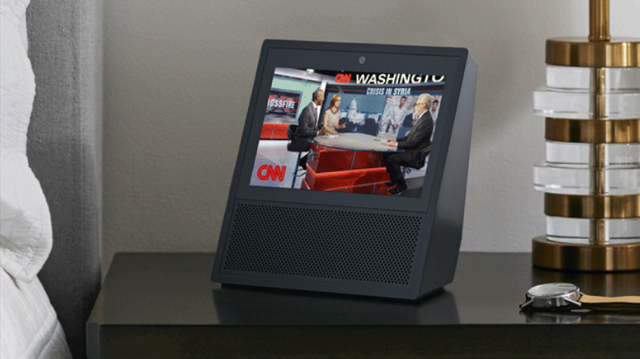Amazon Imagines Alexa Will Soon Replace Your Smartphone
November 13, 2017
Amazon is aiming for a future in which its digital assistant Alexa replaces the smartphone. The future Alexa will evolve from speakers to touchscreens and a new, simpler kind of computing based on voice commands rather than apps. The rationale is that the smartphone has become ever-more complicated, with dozens of apps that distract the user. Developers also have an interest in moving off the smartphone, which has also been shown to have negative health effects. Rather than a distraction, Alexa offers specific interactions.
Fast Company reports that, according to comScore, “the share of U.S. smartphone owners who downloaded zero new apps per month exceeded 50 percent in June, and nearly three-quarters of smartphone owners downloaded fewer than three apps in that period.” Forrester Research conducted a study in 2015 that revealed that “just a handful of tech giants dominate the time users spend on their phones.” Amazon hopes to change that paradigm.
“We’re trying to get people away from all the personal electronics and create more of a family, communal experience,” said Amazon’s head of product management for Alexa Miriam Daniel. “So you’re not just looking down into your individual phones, and you’re actually collaborating with your family members.”
Developers also “see Alexa as a solution to the app discovery problem, partly because it’s new platform that isn’t yet overrun with offerings, and partly because users might become interested in third-party skills that they otherwise wouldn’t download in app form.” Because Alexa’s voice-only form is limited, Amazon has created Echo Show, which includes a touchscreen that a user can tap to “read lightweight news summaries, view upcoming calendar appointments, and place video calls to trusted contacts,” which Daniel calls “shortcuts.”
Alexa currently offers 25,000 third-party skills, and “Amazon is trying to encourage more visual elements inside” them, which would allow a user to “accomplish more of the things that might otherwise require a smartphone.”
At the same time, “Amazon is keeping developers on a tight leash, allowing them to use just a few cookie-cutter layouts for images and text while emphasizing best practices for voice.”
“We don’t want to replicate the multilevel, multilayer touch actions that apps do,” said Daniel. “We want to be able to mimic voice by touch. If you design for touch and you voice-enable, it’s very onerous. If you design for voice, which is very simple, and you touch-enable, you actually simplify touch as well.”
According to Consumer Intelligence Research Partners, Echo has racked up 15 million sales.


No Comments Yet
You can be the first to comment!
Sorry, comments for this entry are closed at this time.